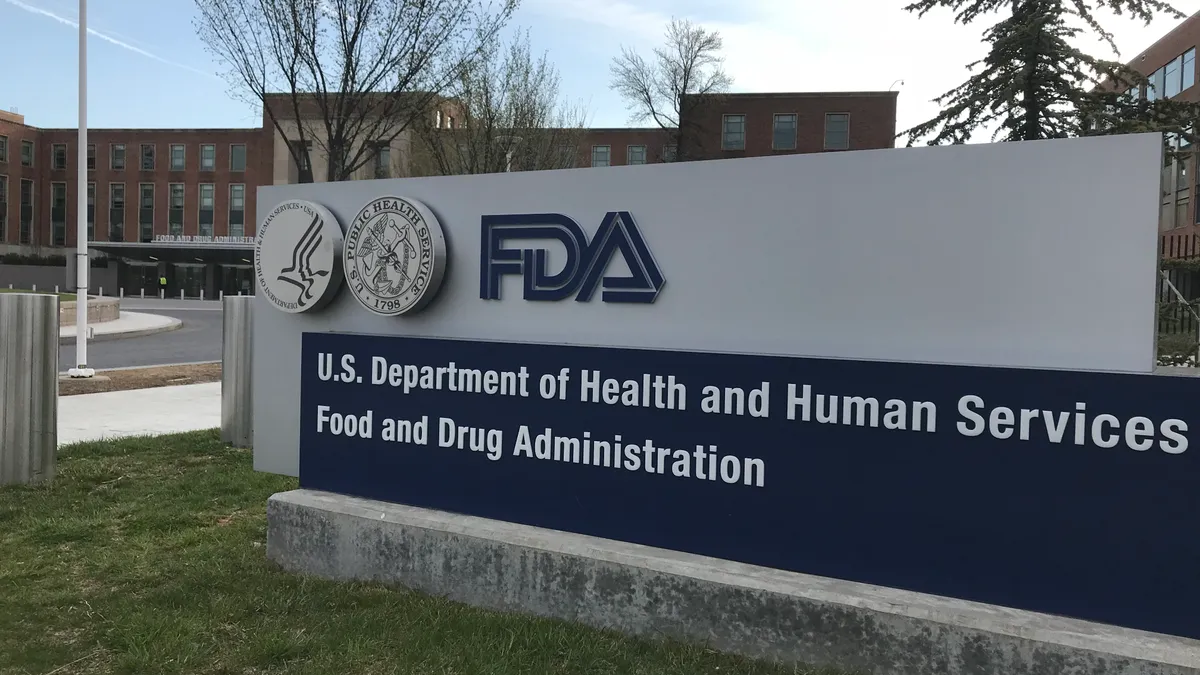Dive Brief:
- FDA on Wednesday said it is working with SARS-CoV-2 test developers to determine potential impact on the efficacy of coronavirus diagnostics as a coronavirus variant first identified in the U.K. has now been found in the U.S.
- Tim Stenzel, director of the FDA’s Office of In Vitro Diagnostics and Radiological Health, told Wednesday's virtual town hall for test developers the agency is trying to assess whether existing coronavirus tests are able to properly detect new COVID-19 variants.
- Separately, lab giant LabCorp on Monday issued a statement that it is "tracking" coronavirus mutations, including a new variant strain of SARS-CoV-2 (B.1.1.7) in the U.K. and more recently in the U.S., to determine the impact on its PCR test sensitivity. "The B.1.1.7 strain is detectable by our current molecular testing," the company said. A Quest Diagnostics spokesperson said the company believes its molecular testing services are able to detect the recently identified U.K. and South African variants.
Dive Insight:
CDC reported on Wednesday that more than 50 cases of the B.1.1.7 variant have been confirmed in the U.S. as public health officials continue to monitor the strain considered more rapidly transmissible than other circulating strains. Last month, the South African government announced it has also seen emergence of a new variant independent of the U.K. strain but so far no U.S. cases have been identified.
Stenzel said that both the U.K. and South Africa strains appear to be "of higher infectivity" compared to the variant spreading in the U.S. The theory as to why they are more infectious is that these variants are more effective at binding to the receptor on the surface of the host cell.
"It's important to understand the variants that are circulating," Stenzel said.
Toward that end, FDA has been asking COVID-19 test developers to "check known sequences of variants" for any potential "challenges" with their molecular assay primers and probes for those variants, according to Stenzel. He also said that the agency is "interrogating" sequence databases to see if there are any mutations that could impact test performance.
FDA is continuing to monitor the U.K. and South Africa SARS-CoV-2 strains and is reaching out to test developers for their assessments of how these mutations could affect diagnostic performance. In addition, the agency is doing its own evaluations of potential impacts to testing performance.
"As soon as all that work has reached a point where we feel like it's important to share any information with the community, we will," Stenzel told developers.
On the positive side of the ledger, Stenzel pointed to Thermo Fisher Scientific's Taqpath COVID-19 assay with S gene "drop-out," which he said is suggestive of the presence of the U.K. variant. Thermo Fisher announced late last month that when people infected with the variant are tested using the TaqPath assay it will result in an S gene dropout. "Because of this, the test can signal the presence of the 69-70del mutation and, potentially, the B.1.1.7 variant," the company said, adding that confirmation of the variant strain can be accomplished by sequencing.
“We do have an interest in sequencing-based tests that can provide whole genome sequence,” Stenzel added, noting that FDA in June granted an emergency use authorization to Illumina's COVIDSeq test, a high-throughput, sequencing-based in vitro diagnostic that detects SARS-CoV-2.
Stenzel said the Illumina test was "a great step forward" but added that the agency authorized it "a long time ago before we really knew how important mutations would be."
FDA in August subsequently granted Illumina an amendment to its previous EUA in an attempt to expand the installed base of next-generation sequencing systems that can run the COVIDSeq test.











